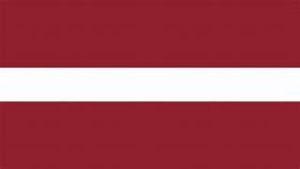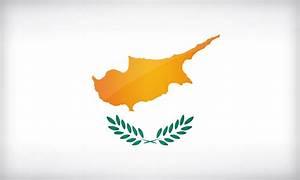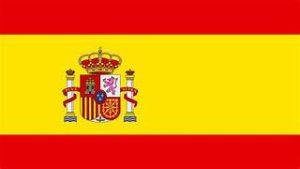Study Abroad
Home > Study Abroad
WHY USA ?
American education has formed a position for itself that has continuous years of demanding and testing. Some of the relevant features of USA as the study purpose are:
- Premier international suitability and status.
- As a savings in your expectations, a U.S. degree offers excellent value for the money. A wide range of tuition fees and living costs, plus some financial help from universities, make study in the United States reasonable for thousands of students
- Students have the freedom to choose from various courses within their university and have a choice of migrate from one institute to the other. Outside the classroom walls, numerous extra-curricular activities give students a ability to develop leadership skills and community spirit. U.S. universities promote outside-class learning through varied social, cultural, and sports activities
- Jobs and stay back options
- Top Ranking Institutions – almost half of the top 100 Universities in the world are in USA
- Opportunity of realistic training during or after study
- Financial support – available for meritorious students
- International students are allowed to work 20 hours per week during their course and 40 hours per week during their vacations
- They can make up to 9 to 15 $ per hour
- An F-1 student is generally entitled up to one year of post-completion practical training. permission for this type of practical training may be granted for a maximum of 12 months and starts once you have graduated or completed your course of study
Qualixa providing valuable guidance and further empowering its students/clients to make the right choices for themselves in the pursuit of US higher education. U.S official language is ENGLISH. And the currency of U.S.A is US Dollar.
Advantages of Studying in USA
- Worldwide recognition comes under a higher education.
- Academic flexibility to be designed under a friendly with student. And offers study choices of an individual.
- The US universities have always giving to Scholarships with bright students.
- World class faculty is available in US education system.
- The US education system encourages the holistic development of the students, the prolific development of the students get through practical exposure and application based academics.
Courses offered
Business & Management.
- Finance
- Marketing
- Accounting
Sciences
- Life Science
- Physical Science
- Social Science
Engineering
- Computer Science
- Mechanical
- Electrical and computer engineering
- Information technology
- Software Engineering
- Civil Engineering
Media & Journalism.
- Digital Communication
- Mass Communication
- Public Relations
- Telecommunication
Hospitality & Tourism.
- Hotel Management
- Hospital Management
Music & Drama.
Chemistry
Pharmacy
Bio-Technology
Duration of the Course.
- Master’s Degree – 1-2 years
- Bachelor’s Degree – 2-3 years
- Diploma Program – 1 year
Intakes
The intake for Government Universities is in January, August and the Polytechnics have April/September intake. The Private Education Organizations (PEOs) have intake throughout the year.
Document required for Admission
- OFFICIAL TRANSCRIPTS/MARKS STATEMENT OF DEGREE
- 10+2 MARKS STATEMENT
- 10th MARKS STATEMENT
- RECOMMENDATION LETTERS
- STATEMENT OF PURPOSE
- RESUME
- FINANCIAL STATEMENT/BANK STATEMENT
- AFFIDAVIT OF SUPPORT
- TOFEL SCORE COPY
- GRE SCORE COPY
- COPY OF PASSPORT
- PHOTOGRAPHS
- ADDITIONAL CERTIFICATES
Living expenses:
Estimated living expenses per year – $10,000-$16,000, it includes accommodation, food, transport and other expenses.
Accommodation:
Residence hall, Private hostels, home stays, public and private apartment are some of the accommodation options available in USA.
Job After Graduation
Students who have successfully completed 2 years study in USA can remain in USA under New Skilled Graduate Temporary Visa for 18 months to gain additional skills they need.
About UK
- Made up of four countries- England, Scotland, Wales and Northern Ireland, the United Kingdom is a especially fashionable study purpose in support of Indian students.
- The UK has more than 100 universities and approximately 165 higher education institutions include universities with colleges.
- With early and conventional universities such like Oxford, Cambridge, Imperial, University College London to present universities, and the UK offers incredible for every student in a selection of subject areas.
- Taught Master courses are no more than for 1 year. You do not need 16 years of education to practice a Masters degree in mainly subjects.
- Mainly undergraduate (bachelors) degrees are for 3 years in England, Wales and Northern Ireland.
- Scotland has various excellent universities, a different education system than the have a rest of the UK and a 4 year undergraduate degree.
Advantages Study in UK
- The UK institutions constantly rank between the most excellent in the world and qualifications are internationally appreciated and predictable
- The UK undertakes 5 percent of the world’s scientific research and produces 14 percent of the worlds for the most part of frequently cited papers.
- UK institutions present flexibility of variety and allow you to combine academic and vocational courses of your selection.
- The teaching and study thoughts used in the UK give you the freedom to be innovative and develop skills sets and confidence.
- As a student you get the opportunity to be taught by the world’s important academics and experts; you also profit from their constant academic support.
- UK degrees can be adapted to your benefit and often include particular modules.
- The UK is the home of English so an ideal place to expand language skills and develop employment prospects.
Courses Offered
- Degree courses
- Vocational training
- Diplomas
- Postgraduate courses.
- Sandwich courses whereby part-time work and real experience is collective among the course period.
- First degree courses of 3-4 years period
- Diplomas and vocational courses of 1-2 years with the Vocational and Technical Education Councils conferring the degree certificate.
- Postgraduate study may be in one of two forms – also as a work of independent research in supervision or a taught course of one or two year’s period.
Required tests:
- IELTS or TOEFL scores or every equivalent as a evidence of English Proficiency
- Diploma programs: Overall group score of 5.0
- Bachelor’s Degree: Overall group score of 6.0
- Masters Programs: Overall group score of 6.0 – 6.5
Intakes:
January/February/September/November
Document Required for Admission
- Copy of passport/visa (if available)
- Academic transcript
- Certificate of graduation
- Certificate of English proficiency – IELTS/TOEFL/PTE Test/Other
- Personal statement
- Reference letters
- CV (if applicable)
Living Expenses:
- Cost of living:
- 11385 GBP (Inner London – 9 months)
- 9135 GBP (Outer London – 9 months)
- Cost of education:
- An average of 7500 pounds per year*
- Fees information given are of informative nature may vary from university to university/
Accommodation:
Residence hall, Private hostels, home stays, public and private apartment are some of the accommodation options available in UK.
Job After Graduation
Most non-EU former students go residence after their studies, but of those who want to effort in the UK, many affect for a Tier 2 visa. To be qualified for a Tier 2 visas: You must have been accessible a job at a particular skills level by a manager with a Tier 2 visa sponsor license.
About Australia ?
Study overseas deals with wide collection of Australian Universities, colleges and TAFE Institutes. We suggest all services from selection of the course till the visa process in our offices. All our services are FREE of charge to students. You will have an chance to meet your university officials who will provide you with the right options of courses at our local offices. Visit and view the university visits to book your slot now.
- Australia has emerged as one of the most approving objective to study and live because of the high normal of education
- Australia has the third major number of International students once USA and UK, making it a serious contender in the International education arena.
- Flexible degree programs as well as small term industry important programs are available
- There is great for everyone. Australia is known for its path options that lead to undergraduate and post graduate degrees. so students, who have not completed well in their year 12 or even in graduation, still have options to study added.
- Australian Education is standard globally with several universities ranked in the top 100 Universities in the world.
- The Education Industry is well regulated by the Australian Government during all the way through initiatives taken such as ESOS Act and CRICOS.
- Cities like Melbourne and Sydney are designated amongst the most livable cities in the world and present a fabulous destination for International students to continue in
- Excellent prediction and opportunity to get work following completion of course
- Australian is measured as one of the most multicultural Societies in the world, its key sectors are liveliness, Manufacturing, Service, Agriculture, Tourism, Media, Education, Mining and Logistics
Advantages of Studying in Australia
Recognition
The Australian Qualifications Framework (AQF) is a national policy to facilitate ensures there is a uniform and standard progression for study. The AQF establishes pathway among qualifications and sets the usual for learning outcomes at every level, so not theme what you study, you can be sure you will gain official recognition.
Quality
The Education Services for Overseas Students Act can be introduced in 2000 and is measured to protect standard for international students studying in Australia. In a 2012 analysis co-conducted by the Australian Government and top instruction groups, 86 per cent of international students responded that they be ‘satisfied’ or ‘very satisfied’ among their experiences studying in Australia.
World-class research
For a country with a reasonably tiny population, Australia has a history of punching beyond its weight once it comes to producing great research. Many Australian discoveries and developments have lead to substantial benefits in the region of the world. This comes as a result of heavy investment in research, among over AU$140 million to be spent on Federation Fellowships over the next five years.
Foundation Studies
There’s no require to worry if you’re looking to study in Australia and you don’t gather the academic requirements. Many institutions will suggest foundation studies – one-year preliminary courses planned to provide the skills and qualifications required to continue higher education in Australia.
Student Visa Perks
Mainly student visas will permit you to employment up to 40 hours per fortnight while your course is in conference, and unlimited hours throughout course breaks. Not only can you work to help cover your costs while studying in Australia but you can gain associates and expend some of your income checking out some of the large destinations the country has to offer.
Accommodation
Australia welcomes students from all above the world and offers a collection of living options to suit all kinds of desires. Depending on the length of your live, where you’re studying and your personal predilection, you can choose among short-term accommodation, rental properties, on campus accommodation and home stays.
Courses Offered
- Doctoral Degree
- Master’s Degree
- Graduate Diploma
- Graduate Certificate
- Bachelor Degree
- Associate Degree
- Advanced Diploma
- Vocational Graduate Diploma
- Vocational Graduate Certificate
- Advanced Diploma
- Diploma
Test Requirements
- TOEFL: Test of English as a Foreign Language (TOEFL)
- IELTS: International English Language Testing System
- PTE: Pearson Test of English (Academic)
Intakes
FEB/July/November
Document Required for Admission
- Attested copies of X, XII & Graduate Degree (if applicable), Mark Sheets including Backlogs (Re-sits)
- Evidence of English Language proficiency e.g. IELTS, TOEFL, etc.
- Standardized Tests e.g. GMAT, GRE (where necessary for the programmer)
- Two academic references
- Two references from employers (where applicable)
- Passport sized photographs
- Statement of Purpose (SOP)
- Resume/CV
- Draft for application fees, if applicable
- Portfolio (for Art, Design & Architecture Courses)
- Other Certificates & Achievements of Extracurricular Activities
Living Expenses
AUD 19830 per year
Job After Graduation
- Part time work right – 40 hours per fort night when the courses in session and full time work rights for spouse for Masters, PhD and post-doctoral programs
- Bachelors 2 years stay back
- Masters by course work 2 years can be extended by 2 years
- Masters by research (3 years )up to 3 years &PhD students – up to 4 year
Study in Singapore
Singapore is a best education hub with top excellence public and private institutions food preparation to the academic requirements of the students across a selection of countries and different backgrounds.
- With a calculated location exact in the heart of south East Asia, the influences of the east and the west unite here thus revealing the student to a multicultural environment.
- Singapore is a industrial nation with a high standard of income.
- Same standard of education and existing at a lower cost as compared to the west.
- several universities from all over the world have set up campuses and collaborations in Singapore
- Singapore’s National universities like NTU/NUS/SMU are among the extremely rated universities in the world. Singapore is close to home being just 5 hours left by flight.
- The Singapore Government takes law and order very seriously and strict action is taken against any offenders as a result of which crime rate is very low. It is consider being one of the safest destinations in the world.
- The private education is heavily regulated by the Singapore government to safe guard the interests of the international student.
Advantages of studying in Singapore
- You can get a scholarship.
- You will study in one of the best education systems in the world.
- You will assure yourself a degree highly renowned by employers
- You will experience a student life like no other.
- Stable economy and political stability;
- Safety and favorable climatic environment;
- Developed infrastructure;
- Multiracial:
- High quality of life;
- Vibrant urban cultural life.
Courses Offered
- MBA/ Business/ Management
- IT/ Computing
- Engineering & Science
- Tourism/ travel/ hotel management
- Creative Arts/ Design Courses
- Architecture
- Medicine
Tests Required
- Polytechnic Diploma & Bachelor programs overall group score of 6.0 or equivalent.
- Master Degree IELTS 6.0 – 6.5 or equivalent depending on the program.
Duration of the Course
- Polytechnic Diplomas: for 3years,
- University Degrees: for 3 years,
- Private Sector Degrees: 2-3 years, SMU
- Postgraduate Degrees: 1 – 2 years
Intakes
January/February/April/May/July/August/October/November
Documents Required for Admission
- Confirmed return air ticket with trip itinerary
- Original passport
- Singapore visa application form duly filled and signed
- 2 passport-size photographs (35mm x 45mm) of each visitor, taken against white background
- Covering letter of the applicant
- Bank statement reflecting transactions of the last 6 months duly attested by a bank official
Living Expenses
An average of about S$750 to S$2,000 a month
Education Cost
- Diplomas- 1 – 2 years (Cost- S$9000- S$15000)
- Bachelors- 2-4 years (Cost- S$ 24000- S$35000)
- Masters- 1- 1.5 years (Cost- S$ 18,500- S$ 30000)
Job After Graduation
SG institutions will have Career Assistance Unit which will:
- Conduct Career Related Workshops
- Train and equip students with the necessary knowledge and skills to increase their chances of securing jobs.
- To provide students with the opportunity to be exposed to the corporate world through internship programmers while simultaneously pursuing their course.
About New Zealand ?
New Zealand is a expenditure of use choice to the UK or Australia. It is a good option for students seeking outdoor adventure in an English speaking country. New Zealand is a welcoming nation offering a warm student friendly environment. New Zealand education is recognized all across the world. The cost of income is a large quantity lower as compared to the other countries promoting higher education. Traditionally based on the British Model, the university learning system is research based which ensures a high quality learning experience.
All document matters pertaining to education are accepted by the department of education. It acts as a quality check body for the institutions this protecting the interests of both domestic and international students alike.
Advantages of studying in New Zealand
- You obtain an internationally recognized qualification
- You achieve one year job exploration visa following your study in New Zealand
- You find full time job offer during job search visa, you will get two year work permit
- You get points for permanent residency in New Zealand
- You can improve your English proficiency
- You can work part-time while you study
- Your dependents can accompanied to New Zealand along with you and dependents can work while you study
- Skill shortage and many job opportunities will help you to find very good jobs and permanent residency in New Zealand
- You will get immense chance to cooperate with many cultural environment students
- Very less crime and safe, friendly multicultural society Education expenses are lesser than UK ,USA and Australia
Courses Offered
- MBA/ Business/ Management
- IT/ Computing
- Engineering & Science
- Tourism/ travel/ hotel management
- Creative Arts/ Design Courses
- Architecture
- Medicine
Duration of the Course
- 3-4 years for undergraduate courses,
- 1+ years for postgraduate courses
Tests Required
IELTS scores as a proof of English Proficiency.
- Diploma programs: Overall band score of 5.5 with no band less than 5.0
- Bachelor’s Degree: Overall band score of 6.0
- Graduate Diploma: Overall band score of 6.0
- Master Programs: Overall band score of 6.5
Intakes
January/July/October
Documents Required for Admission
- Attested copies of X, XII & Graduate Degree (if applicable), Mark Sheets including Backlogs (Re-sits)
- Evidence of English Language proficiency e.g. IELTS, TOEFL, etc.
- Standardized Tests e.g. GMAT, GRE (where necessary for the programme)
- Two academic references
- Two references from employers (where applicable)
- Passport sized photographs
- Statement of Purpose (SOP)
- Resume/CV
- Draft for application fees, if applicable
- Portfolio (for Art, Design & Architecture programme)
- Other Certificates & Achievements of Extracurricular Activities
Cost of Living
NZ$15000 per year *
Cost of Education
- Polytechnic qualification Courses collection from NZ$13,500 – NZ$16,000 for each year depending on the classes
- Universities Degree range from NZ$15,000 – NZ$18,000 per year for most under-graduate degrees
- Post-graduate Degrees begin from NZ$16,000 per year and MBA Degrees are about NZ$22,000
Tuition fees vary depending on the institution and the study programme
Job After Graduation
Students who have completed one year academic in NZ may be eligible for Graduate Job Search Work Visa for 1 Year. If you have found a job then, you can apply for a further work permit for 2 or 3 Years under study to work policy.
About Germany?
- Safe country to live and study
- World class degrees recognized around the world
- Diverse range of study opportunities
- 17,500 degree programmers offered
- Scientifically oriented study in a wide range of disciplines.
- Lowest tuitions fees
- Affordable living expenses
- Ample number of scholarships on offer
Advantages of studying in Germany
- Cost of education
- Plentiful Scholarships
- Abundance of courses and colleges
- International reputation of colleges
- No language barriers.
- Opportunity to learn new languages
- Cultural Hub
- An attractive workplace
- Leisure time forerunner
- A conglomeration of qualities
Courses Offered
- Agriculture & Environmental sciences
- Architecture Courses
- Arts, humanities & Sciences
- Business and Management
- Computer & IT
- Creative arts, Design and Communication
- Education, PGCE & Teaching courses
- Engineering Courses
- Law Courses
- MBA courses
- Science Courses
Intakes
April/October
Documents required for Admission
- Attested copies of X, XII & Graduate Degree (if applicable), Mark Sheets including Backlogs (Re-sits)
- Evidence of English Language proficiency e.g. IELTS, TOEFL, etc.
- Standardized Tests e.g. GMAT, GRE (where necessary for the programme)
- Two academic references
- Two references from employers (where applicable)
- Passport sized photographs
- Statement of Purpose (SOP)
- Resume/CV
- Draft for application fees, if applicable
- Portfolio (for Art, Design & Architecture programme)
- Other Certificates & Achievements of Extracurricular Activities
Cost of Living
8640 Euros for first year.
Cost of Education
€500 per semester
Job after Graduation
With a degree from a German university, international graduates have numerous job opportunities on the German job market. Students starting non-EU countries are acceptable to continue in Germany for the reason for looking for employment for a greatest of 18 months following graduating.
Study in Canada
- First rate education system in the world
- Immigration friendly country
- Large number of prestigious universities to choose from
- Low Tuition Fees
- Range of job focused programmers with Co-op
- Strong growing economy with large manpower shortage
- prospect to expand Canadian employment experience by effective part-time on- campus not including a work allow and off-campus with a job permit
- Post-graduate work permits upon completion of studies related to field of study
- Nomination for Immigration to Canada under Provincial Nominee Programs
- Chance to stay in Canada while your permanent resident application is in process
- Spouse accompaniment/work right
Advantages of studying in Canada
- Advanced Quality Education
- Affordable Education
- Internationally recognized
- Long Term Advantage
- Multicultural Society
- Campus Lifestyle
- Pioneering and Abundant Research Opportunities
- Possibility of Immigration
Courses Offered
- First Professional Degree
- Diploma
- Associate Degrees
- Applied Degrees
- Bachelor’s Degree
- Master’s Degree
- Doctorate
Tests Requirement
- TOEFL or IELTS scores as a proof of English proficiency. Depending upon the institution, the score requirements may vary between 80-100 for TOEFL and 6.0 – 7.0 bands in IELTS.
- in support of MBA entrance a good score in GMAT is mandatory.
Intakes
January/May/september
Document Required for Admission
- VAC Consent Form.
- Study Permit Form – IMM 1294 IMPORTANT: Please make sure the information (name, date of birth, passport number, etc.) on your application form matches EXACTLY the information on your passport. …
- Family Information Form – IMM 5645.
- Photograph Specifications.
Cost of Living
Approximately CAD 10000 – 120000 for 1st year
Education Cost
- Diploma & Advanced Diploma Courses cost range from CAD$11,000 – CAD$13,000 per year depending on the course.
- Bachelor’s Degrees cost range from CAD$13,000 – CAd$19,000 per year for most under-graduate degrees*
- Post-graduate Degrees cost ranges from CAD$12,000 and ranges up to CAD$22,000*
- Fees given are of informative nature may vary from university to university
Job after Graduation
- Part time work right : Off campus 20 hours per week – 40 hours per week during vacation
- 40 Hours per week during vacation. No limit for on campus work
- up to 3 years stay back for ( 2 years study )or equal to the course duration if it is less than 2 years
Europe Countries
Austria, Belgium, Estonia, Poland, Czech, Republic, Portugal, Finland
About Europe
Europe is a big position to knowledge special cultures, traditions and languages which will be a large value for your special as well as your qualified progress. Beside the way it also makes you organized for a globalised effective environment. You will include the ability to study different languages like French or German and yet be capable to work on your degree in different countries if you hope! You must not remember about the frequent journey opportunities. The Acropolis in Athens, the Finnish lakes, the municipality of be in love with Paris or the active night time in Berlin are just a few examples of thrilling spaces in Europe which are for the future for you to be explored!
The Schengen Agreements fashioned Europe’s borderless Schengen Area, which operates very greatly like a particular state for worldwide travel with outside border wheel for travelers travelling in and left of the region, but with no inner border control. The borderless zone fashioned by the Schengen Agreements, the Schengen Area, at the moment consists of 26 European countries; deposit a people of over 400 million people and an area of 4,312,099 square kilometers (1,664,911 sq mi)
European universities consist of an excellent quality and a lot of of them can be found between the top 100 universities according to accepted world-wide rankings such as the Times status. They are not only contribution state-of-art facilities as well as countless research opportunities but Europe and its universities do also have a long convention of higher education for loads of centuries. In Europe, mainly continental Europe, the upper education systems are deeply subsidized by their national governments. If you measure up to the top 100 universities according to the Times ranking, you will figure out, that the schooling fees of the top universities of continental Europe are on standard 75% less compared to the top universities in the USA. You can observe that European universities are an exceptional as well as a economical alternative for your studies.
There are thousands of programmers in Europe trained in English foreign language so you can establish right forward! Further, European universities are a really international environment and very unfasten towards foreigners. You will gather a lot of other international students and be capable to get completely along with English language on the campus. In some universities over 50% of the students are international ones! The basis of our placement is an individualized measurement of each potential student with whom we work. Beginning with an interview process, we get to know the academic records, abilities, benefits and needs of applicants. That evaluation, combined with our general knowledge of available programmers as well as admissions necessities at a number of universities overseas forms the root of the guidance we give through each step of the admission and visa procedure.
Advantages of studying in Europe
- Who can apply:Anyone interested in studying in Europe
- Where you can study:Austria, Belgium, Cyprus, Germany, France, Ireland, Holland, Poland…etc
- What you can study:Anything (But it may be hard to get admitted into programs like medicine)
- When you can apply:Although some countries offer many intakes, fall intakes are more popular
- What you pay for our services:$400
- What else you should budget for:Visa fees, tuition fee, air ticket and maintenance fees abroad
- Tuition fees:Averagely from €600 to about €8000 per year for undergraduate
Averagely from €1000 to about €15000 for postgraduate studies - Why you should apply:
We assist our clients through the whole process, from admission to visa application
Students can work part time while studying
No bank statement needed to obtain a visa to some Schengen countries
High quality academic programmes and internationally-recognised degrees
Affordable tuition fee in most European countries
The possibility to learn a new language or to study in English
What You pay for
- A preliminary evaluation of your chances
- Advice on which travel opportunity is suitable for you
- A complete information package including clear instructions and the list of required documents
- Review and fine-tuning of all your documents
- Recommendations in regards to sustaining ID to develop your visa purpose
- Complete and personalized briefing before departure;
- Ongoing relations and follow-ups with embassies to ensure a smooth processing of your application;
- Guarantees of constant support. In the event of any difficulties or problems, we will discuss, negotiate or advise you on all possible legal recourses to obtain a favorable decision.
Required Documents
Earliest of all, the student has to download the purpose form the internet and fill it finally and honestly. You can by machine load in the form for a Schengen Visa and carry it out. The signed application structure must be followed by other binding documents, handed for myself at the consulate/group or the agent of the country you are development to study in.
- A official travel document/ passport (At least 3 months up to its expiration date)
- Documentation to verify how you propose to sustain your wait in Europe. You may near the subsequent as a proof of means of subsistence: cash in adaptable currency, traveler’s cheques, cheque books for a foreign exchange account, credit cards or every other means that guarantees funds in tough currency.
- Proof concerning your accommodation. This is not essentially required in case the students proves that he/she will have sufficient money to sustain themselves through their stay in the foreign Schengen country.
- Two current passport-sized photos (Appropriate for the designated embassy/consulate)
- Travel itinerary
- Medical/travel insurance valid for your entire stay in the Schengen country
- Letter of acceptance from your university
- A bank receipt to prove you have paid the processing fee
Depending on the group/consulate that you resolve is applying to, they capacity need additional credentials to declare the application and the information are real, as for case, some embassies/consulates need a certificate with the purpose of proves you have no authorized issues throughout or a illegal record. As, the students should for myself hand the certification at the earlier complete appointment (as typically it is necessary), the person in accuse at the group/consulate will report you if here is any added documentation required and the natural history of that documentation.
Study in Cyprus
- The international dimension of education is pivotal in Cyprus and the international students can get high quality education in a safe and a secure environment at a nominal expense.
- Extensive networks and lifelong friendships are there between the overseas students and the Cypriots that increase the cultural and trade relationships between the nations.
- Cypriots provide great education standards and skills to work in a worldwide marketplace.
- The number of students from all over the world is increasing fast in Cyprus in the last ten years.The education standards in Cyprus are second to none. To study in Cyprus is a nice aspect to do and one can learn and imbibe a great deal of things in Cyprus
Why Study in Cyprus?
- Various universities in Cyprus are providing several courses at nominal fees.
- In Cyprus, students get ample chance to study their courses. There is no restriction for studying for the foreign students.
- English is the major language for instruction in Cyprus. Several of the programs are provided in English particularly at the masters and bachelor’s degree level.
- Students will get a world class degree that is recognized all over the world.
- Students will have nominal living costs and low expense on-campus and off-campus rooms.
- There are several financial aid programs available in Cyprus at universities or colleges and these give financial help to the students who require aid so as to start or finish their studies in Cyprus.
- Part time work is allowed to the students who possess a work permit. The students will have the chance to work during the semester up to twenty hours per week.
- The students during break time may avail thirty-eight hours per week.
- There are over 40,000 students who study in North Cyprus.
- You may get permanent access to the Turkish and European shores..
- Cyprus is the ideal and choicest destination for all the different nationalities. It has a highly streamlined and nice framework of education. Cyprus is suited for students who want to pursue higher studies
- The education System in Cyprus is easy and flexible and designed keeping in mind the interests of the students. The students will really benefit from this type of education system as it will prepare them to make a career in Cyprus or in other European nation
Cost of living in Cyprus
- The restaurants are quite affordable in Cyprus. Cyprus has got a broad range of varied international cuisine that is available at affordable prices
- The bars and restaurants in Cyprus provide local and imported beers priced at 2.50 Euros per pint.
- There are a great range of wines that are around 2.20 Euros per glass.
- The food in Cyprus is affordable and has a great variety of fresh fruits, vegetables, meat and fish..
- Petrol is affordable in Cyprus. The petrol prices are between 1.20 Euros and 1.45 EurosThe Cost of Living in Cyprus is quite affordable for all the foreign nationals. It is a great destination for the international students due to its affordability and low costs. in order to know more about cost of living and other aspects in Cyprus, contact us.
 Why Study in Lativa ?
Why Study in Lativa ?
- Schengen Country (Student gets the Visa for 28 Countries)
- Exchange semester & Dual degree Programs available at all Universities.
- A student can study at Indian cost, tuition fee starts from Rs 2,50,000 per year.
- All Programs are in the English Language
- The student can work 20 Hrs per week part-time.
- Paid Internships in UK, CANADA, EUROPE
- All universities are Govt. or Govt approved
- Very easy visa processing – one-day old funds also acceptable, required only Rs 3.5 Lakh
- Programmes available In all fields like engineering, Business, Medical, MBBS, Hotel Management etc.
- IELTS is not required if student can speak good English
- All Programmes Starts on Sept 2013j) Student can have an exchange programme with other European universities as well.
Facts About Latvian Universities
- All universities issue European Union Degree valid all over the world including India.)
- High-Quality Education
- Very Low Tuition Fees.
- Indian students who graduated from these Universities are working in Europe & Other Countries.
- Erasmus Exchange Semester with grants on Living Expenses for Indian students
- Paid Internships with all postgraduate programmes
- Classrooms with good mix of international and local students
- All Education in the English Language
- Excellent facilities for Sports & other activities
- World class Laboratories for Research
- AHostel Accommodation and other utilities available for as low as 100 Euros per month with all universities.
The Fields we cover are
- Medical Sciences
- Business Studies and Management Sciences
- Engineering and Technology.
- Mathematics and Informatics
- Biotechnology/Biosciences/ Life sciences
- Basic Sciences (Physics/Chemistry/ Mathematics)
- Mass Communication/Media
- IT/Computer Science
- Law
- Banking & Finance
- Accountancy (MBA/CPA)
- Interior Design
- Hospitality, Travel & Tourism
Top state in institution in Latvia
- Daugavpils University
- Latvia University of Agriculture
- Liepaja University.
- Riga Stradiņš University
- Riga Technical University
- University of Latvia
- BA School of Business and Finance
- Jāzeps Vītols Latvian Academy of Music
- Latvian Academy of Culture
- Latvian Academy of Sport Education
- Latvian Maritime Academy
- Rezekne University of Applied Sciences
- Riga Graduate School of Law
- Riga Teacher Training and Educational Management Academy
- Stockholm School of Economics in Riga
- Ventspils University College
- Vidzeme University of Applied Sciences
Top private institution in Latvia
- ISMA University of Applied Sciences
- Latvian Christian Academy
- Riga International School of Economics and Business Administration (RISEBA) .
- Baltic International Academy
- The University College of Economic and Culture
- Transport and Telecommunication Institute
- Turiba University
English Level – IELTS Not Required
Student should speak good English + Education Overseas Counselor will be taking personal or Skype interview before taking the application
Spouse Visa
Spouse may apply but not allowed to work in Latvia
Visa Requirments
Rs 4 Lakhs in students account (one-day old funds acceptable).
Assistance with genuine and personalized information on the courses available, eligibility criteria and visa application. We also arrange bank loans, pre-departure advice, forex, insurance and travel assistance and accommodation guidance.
DENMARK STUDY VISA
Students looking for options to study abroad can choose Denmark. This country is a good choice for many reasons. Denmark has many top-ranked universities and offers scholarships and grants to deserving students. The housing and living costs are reasonable and students will get an opportunity to experience the unique culture, cuisine, and traditions of Denmark.
WHAT ARE THE VISA REQUIREMENTS FOR STUDENTS?
The visa requirements for studying in Denmark is dependent on your country of origin. If you are from any of the Nordic countries i.e. Norway, Sweden or Finland, you can study in the country without the need for any documentation. You will only need a personal identification number which will be given to you when you submit your passport or any other personal identification on arrival.
If you belong to the EU or EEA or Switzerland, you can stay in Denmark for up to three months if you have a valid passport. However, if you plan to stay for more than three months, you will need a Danish registration certificate. With this certificate you will get a personal identification number which is essential if you want to work in the country.
If you are not from the EU or EEA, you will require a permit to study in Denmark. The kind of permit will depend on the duration of your stay. If you are planning to stay here for less than three months, you will need a visa and for a longer stay of more than three months you will need a residence permit. Here are more details:
VISA FOR SHORT TERM STAY
You can apply for this visa at the Danish embassy or consulate in your country. This visa however does not allow you to work in Denmark.
RESIDENCE PERMIT FOR LONG-TERM STAY
If you must stay in Denmark for more than three months for your studies, then you will have to apply for a residence permit. You can make the application at the Danish embassy in your home country. With the residence permit, students can work in Denmark for 20 hours per week.
The residence permit will be valid for the duration of your program, so you need not bother about renewing it during your program. It is better to begin your application process three months before you travel to Denmark.
REQUIRED DOCUMENTS:
- A valid passport
- Proof that you have the financial resources to support your stay during your course
- Proof of proficiency in either English or Danish based on which language you are doing the course
- Proof of travel insurance purchase
- Proof of having planned for your accommodation during your stay
APPLICATION PROCESS
Open an account on the Danish Ministry of Foreign Affairs’ Apply Visa website.
Fill out the online form for Denmark.
Then, depending on the type of permit, pay the necessary fees.
Schedule an appointment at one of the approved VAC in Denmark. You can do so by visiting the website of the VAC in your region.
You can then visit the VAC with the cover letter that you received via e-mail and submit your biometrics there.
SWITZERLAND STUDENT VISA
Students who opt to study in Switzerland can choose to do courses form the many universities here or opt for vocational training. Universities here offer courses ranging from general education to applied sciences. There are many technical schools here that offer vocational training and offer certificates and diplomas.
Switzerland has a combination of state-funded institutes and private universities. Both offer a range of courses.
ELIGIBILITY REQUIREMENTS
- For a bachelor’s level course, a Swiss maturity certificate or a university qualifying secondary education certificate if you are applying from outside. This must be recognized by the university you are applying for
- For master’s program a bachelor’s degree is required
- Proficiency in the language of instruction which is usually English
- Some universities may ask for a TOEFL certificate
SWITZERLAND STUDY VISA REQUIREMENTS
Non-EU nationals require a student visa to study here. The documents required include:
- Valid passport
- Proof of having the required financial resources to cover your living expenses during your course of study
- Health insurance policy that also covers accidents
- Study plan which describes the general purpose of your studies
- Certificate of acceptance from the educational institution in Switzerland
- Details of tuition fee payments or any scholarships
- Confirmation that you will leave Switzerland once you finish your studies
TUITION FEES AND SCHOLARSHIPS
The tuition fee in Switzerland is comparatively lower compared to other European countries. Apart from this there are various scholarships available to students.
The Swiss government provides major support to public universities. As a result, tuition costs are less expensive than those levied by colleges in the United Kingdom and the United States. International students participating in an exchange program in Switzerland do not have to pay a tuition charge.
The following are the average tuition fees at Swiss public universities:
The tuition expenses at Swiss private universities are usually higher.
WORKING WHILE YOU STUDY
You can work on a student visa during your studies. The hours you can work depends on your visa/permit and also approval from your university.
CONDITIONS FOR WORKING
International students can work up to 15 hours per week.
International students can work up to 100 percent of the time during semester breaks.
Students from outside the EU/EFTA nations are permitted to begin working six months after beginning their degree program
COMPLETE ADMISSIONS SUPPORT TO STUDY IN DUBAI
Dubai is known as the Education Hub for providing excellent facilities in terms of education to locals and International Students. Many campuses in Dubai offer education to International Students, providing popular courses like Science, Engineering and Technology, Architecture, Aviation, Management, Business, Economics, Media and Mass, Computers and IT, Law, Natural Sciences etc. The degrees are highly reputed and globally recognised leading to work opportunities in the country and globally. While Architecture is in high demand, programs in building construction and Interior designing are very popular courses.
WHY STUDY IN DUBAI?
- Safest place to live, this solves the biggest worry of every parent!
- Well established Education System.
- Universities in Dubai provide modern infrastructure.
- Tuition and living costs are less as compared with other countries like the United Kingdom, the United States, and European Countries etc.
- One of the fastest growing economies with ample opportunities, allowing a bright career for students globally post their study.
- Students experience the cultural diversity with more than 200 nationalities in Dubai, which is very helpful for their future.
ELIGIBILITY CRITERIA:
Study Undergrad (for international students) in Dubai
- IELTS / TOEFL needed
- A minimum of 12 years of schooling with minimum 60% and above.
- Some universities like the Al Ghurair University, University of Wollongong in Dubai and Middlesex University Dubai requires a minimum percentage 65% if you are coming from CBSE or ISC board
- Students who gets more than 75% in English may be exempted for IELTS
Note: Competitive Universities need EmSAT for UG admission.
The EmSAT is a national system of standardized computer-based tests, based on United Arab Emirates national standards. The Competitive and primary university admission criteria for public and private universities. The test includes several subjects Arabic, English, Mathematics, Physics, Chemistry, Computer Science and Biology. However, Arabic is not mandatory for international Students.
Study postgraduate (for international students) in Dubai
- Foreign universities with branches in Dubai look for qualifications similar to that in their country. For example Murdoch University. Dubai looks for postgraduate qualification that meets the same academic standards as an Australian three year bachelor degree. However, it does not mean it has to be an Australian degree.
- 60% and above percentage in Undergraduate degree will be considered.
- For admission one needs bachelor’s degree along with TOEFL or IELTS.
- Admissions to MBA programs in Dubai require students having relevant work experience of 2-4 years depending upon the program and the university applied.
INTAKES AND DEADLINES:
- Intakes for Under graduation: April/May; July/August; December/January.
- Intakes for Post-graduation: July/August; December/January.
In some universities, the admission happens all through-out the year. So, the admissions happen in fall, spring and summer. The fall season attracts most of the international admissions.
Students are advised to apply 3-4 months before the intake.
WORK AUTHORIZATION FOR STUDENTS:
United Arab Emirate provides off-campus part-time job opportunities to International Students ONLY on PERMISSION from department of Labour and students require permission from the University or College for part-time work.
Student age should be above 18yrs to work.
- During sessions, students can work for 15 hours per week or 60 hours per month.
- During summer breaks, they can work for 40 hours per week or 160 hours per month.
DUBAI STUDENT VISA REQUIREMENTS
- Have a Valid Passport and required no. of photographs.
- Undergraduate degree certificates and mark sheets in case of Post graduate courses.
- Admission Offer Letter received from Dubai University/Institute
- English test scores.
- Sponsor for visa , who can be either the Institute/Parent or relative allowing the visa filing only through them.
- Sufficient funds and related evidences
- Arranged accommodation proof
- Funds ready to transfer the tuition fee for the first year which has to be paid as part of admission process.
- Student visa fee receipt.
- Any additional documents like statement of purpose, recommendation letters may be required as per University requirements.
- Undergo and satisfy medical requirements post arrival(tested for HIV, Hepatitis C, Hepatitis B, Leprosy, Syphilis and Tuberculosis.
- Medical/travel insurance
An extra 1,200 AED (330 USD) per month should generally be included for general living expenses(AED15000 per annum).Student should be ready with funds for 1 year tuition and living costs transferable, and sufficient evidences to prove the funds covering the entire course fees.
STEPS TO STUDY ABROAD IN DUBAI:
Step1:
Research Your Options:
Before you shortlist the universities/institutes, decide what you want to study, where you want to live, overall cost, various opportunities etc.
Step 2:
Select Universities/Institutes:
Shortlist the universities/Institutes (about 10 universities should do) & study programs that meet your requirements and you want to apply for.
Step 3:
Prepare for entrance exams:
Prepare for the standardized tests like TOEFL/IELTS etc. based on the requirements of the universities & colleges. Register for these tests in advance. While applying for the tests you should also plan for the time required in case you need to retake the test. You should complete these tests before few months of the intake.
Step 4:
Finance your studies:
Ensure that you have the money ready for your entire period of study in DUBAI along with accommodation, local travel, food, and other miscellaneous expenses. Decide on how you will finance your studies – personal saving, education loans, student scholarships or assistantship.
Step 5:
Apply to university/Institutes:
Every University/Institute has its own admission requirements. Complete the applications well before deadlines. Your consultant can help you in choosing the right Institute and guidance on application process and submissions
Step 6:
Confirm admission:
Once you get your acceptance letters from the universities/Institutes that you have applied to, choose the university you would like to study at. The next step is to pay the required fees and proceed with Admissions confirmation.
Step 7:
Get Student Visa:
Once you get admission confirmation done, you can apply for your student visa(entry permit) through the sponsor(University/Institute/ Or Parent/Relative). Your Sponsor need to apply for a residence visa once you enter the country.
Student visa will be issued for 1 year and can be extended as per the course duration. Any student staying more than 6 months outside Dubai, will make his visa invalid.
Processing time : 2-4 weeks
WORK OPPORTUNITIES AFTER YOU GRADUATE:
- International students in Dubai on a student visa cannot take up a job in Dubai. Nevertheless, internship opportunities are available following the completion of their studies in Dubai. Internships are usually unpaid.
- Dubai has provided ways to encourage international students by allowing them to do internships post their graduation. Recent graduates can take up internships through their University/Institute permission and recommendations.
- University students who graduate with a distinctive GPA of at least 3.75 from universities will be allowed a long-term visa for 5 years renewable visa allowing you a permanent stay. You can find a job and settle in the country. Visa benefits will also include families of the outstanding students.
- Graduates can also look for jobs with in Dubai and upon finding an employer can apply for a work permit through their employer, without which it is not allowed to work.
- The main type of Dubai work visa is the “Residence permit for employment issued for an employee”.
- The Dubai residence permit for employment issued for an employee permits an individual – intending to work in Dubai within the private sector – to remain in the country for up to 3 years.
- An international student must plan on supporting themselves after the completion of their studies, so that they have the time for looking for jobs in Dubai after graduation.
- On receiving a job offer, that employer will be processing a Dubai work permit without which no recent graduate can begin working full-time in Dubai.
- The minimum employment age in the UAE/Dubai is 18 years.
SPAIN STUDENT VISA
Spain has for many years been considered by international students as an ideal study abroad destination. Spain has several popular colleges and universities and offers many choices for international students.
If you are from a non-EU nation you will need to apply for a student visa if you wish to study in Spain. You can apply for a visa after you have received the letter of confirmation from the university that you have been selected for.
LANGUAGE REQUIREMENTS TO STUDY IN SPAIN
Though international students can enroll for courses taught in English, it is beneficial if they learn the Spanish language. Spanish is not required for admission to universities in the country.
But most universities that have programs in the Spanish language require applicants to have a good command of the language. They need to have passed the Spanish language test. The main Spanish test accepted is the DELE test (Diploma de Español Como Lengua Extranjera).
If you have decided to pursue a course in the English medium, you must show your proficiency in the language by passing any of these tests: IELTS or Cambridge Advanced
STUDENT VISA FOR SPAIN
The visa you will have to apply for will be based on the duration of your course. The details are as explained below:
- 180-days D type visa – if duration of course is between three and six months
- Student visa (type D) – if duration of course is more than six months
The Type D visa makes you eligible for the Residence Card for foreign students (TIE). This is a temporary permit which allows you to stay in the country for the duration of your course. The validity of TIE is for a maximum of one academic year and you can renew it every year till you finish your studies.
You cannot apply for a student visa when you are in the country on a short stay visa. You can apply for the visa only from your home country.
After you arrive in Spain on a student visa, you cannot change the type of visa. The visa is valid only if you have obtained it from a Spanish embassy or consulate.
DOCUMENTS REQUIRED FOR SPAIN STUDENT VISA APPLICATION:
- Completed visa application form
- Passport which is valid for the intended period of your stay
- 2 passport size photos
- Certificate of acceptance from the Spanish university
- Information about the study program such as the name of the degree and hours of study per week
- Health insurance valid for the whole period of your studies
- Proof of having the required financial resources to cover your living expenses during your course of study
- Medical certificate and Criminal record certificate to be Apostille by MEA/HRD
- Proof of having paid the visa application fees
- Criminal record certificate to prove you have no cases
WORKING WHILE YOU STUDY
Students from non-EU countries can work part-time during their course and full-time during vacations.
Non-EU/EEA students must meet the following requirements in order to work in Spain:
- Apply for a work permit (the employer should make the application).
- Have a secondary source of financial support (the part-time work income should only be complementary).
- Keep in mind that you can only work full-time for three months at a time (and not during university term time, when you are supposed to be studying).
NETHERLANDS STUDENT VISA
Netherlands is a good study abroad destination for international students owing to its learning system which is problem-based. The courses here train students to analyze and solve problems. The universities here offer more than 1500 study programs and short courses.
The country offers more than 400 different courses and study programs in a program called the International Education in English, which attracts more than 4200 participants every year. This program is meant for post-graduate students or those with some prior professional experience. These courses are conducted in English and are practice oriented. Most of these courses lead to a diploma.
Courses that the country is reputed for include agricultural sciences, astronomy, medicine, civil engineering and management studies.
LANGUAGE REQUIREMENT TO STUDY IN NETHERLANDS
Study programs are available in English for postgraduate and PhD courses. More than 90% of inhabitants here speak the English language. A minimum level of English language proficiency is required to study here. The test scores accepted by universities in Netherlands:
- TOEFL
- IELTS
STUDENT ACCOMMODATION AND LIVING COSTS
Accommodation costs like rental rates are low when compared to other European countries. When choosing to study here students must consider living costs that include food, transportation, and social activities. This will come to 870 Euros per month.
WORKING WITH A RESIDENCE PERMIT
International students with a residence permit can work in Finland provided it is related to the course they are doing. A student can work for 25 hours in a week during the program and full-time during vacation breaks.
STUDENT VISA REQUIREMENTS
You will need a Provisional Residence Permit (MVV) – an entry visa (or provisional residence permit) for both long-term and short-term study courses.
If you are staying in the country for more than three months, apart from your entry visa you will have to apply for a residence permit (VVR). This is like a study visa that permits you to stay for the duration of your course. It can be extended if required for an additional three months.
DOCUMENTS REQUIRED INCLUDE:
- Valid passport
- Completed visa application form
- 2 passport size photos
- Birth certificate
- Academic transcripts
- Proof of having the required financial resources to cover your living expenses during your course of study
- Copy of travel and medical insurance policy
- Certificate of acceptance from the educational institution
- Complete study plan – explain why you are interested in studying the chosen subject area and how and why it is related to your prior studies
- Proof of having paid the visa application fees
- Complete study plan that explains why you are interested in the subject and its relation to your prior studies
WORKING WHILE YOU STUDY
Students from non-EU countries can work here during their course if they have a work permit. The employer can apply for the permit on your behalf. International students can work up to ten hours a week during their course and full-time during vacations.
ITALY STUDENT VISA:
Italy is known for some of the oldest universities in the world. The country offers numerous options for international students and provides a choice between institutions that include state universities, private universities, and technical universities. The institutes follow a five-year education system with 3 years for a bachelor’s degree and 2 years for a master’s degree.
The universities in Italy offer four categories of courses:
- University diploma
- Bachelor of Arts/ Science
- Research doctorate
- Diploma of Specialization
Italy like all the other European countries follows the Bologna system.
ITALIAN LANGUAGE REQUIREMENT
Though international students can enroll for courses taught in English, it is beneficial if they learn the Italian language. This will help them communicate with the local community and get familiar with the local culture.
Student accommodation and living costs:
Accommodation costs like rental rates are higher in bigger cities than in smaller cities. When choosing to study here students must consider living costs that include food, transportation, and social activities. Again, these costs are higher in bigger cities like Milan and Rome.
ITALY STUDENT VISA REQUIREMENTS
Non-EU nationals require a student visa to study here. There are two types of student visas in Italy based on the duration of the study program:
- Visa type C: Short-stay visa or travel visa valid for one or more entries and for a period not exceeding 90 days
- Visa type D: Long-stay visa valid for more than 90 days
ITALY STUDY VISA REQUIRED DOCUMENTS:
- Passport valid for at least three months after the expected end date of your study program
- Completed visa application form
- Proof of having the required financial resources to cover your living expenses during your course of study
- Medical insurance policy
- Certificate of acceptance from the educational institution in Italy
- Details of tuition fee payments
- Copy of your itinerary to and from the country
- Proof of having no criminal record
- Proof of language proficiency in Italian or English based on the medium of instruction of your course
WORKING WHILE YOU STUDY
Students from non-EU countries can work here during their course if they have a work permit. This requires a job offer from an Italian employer. The processing times for the work permit vary between regions and take an average of two months.
STUDY IN SWEDEN MEET THE STUDENT VISA REQUIREMENT FOR SWEDEN, GET A SWEDEN STUDENT VISA
Explore Sweden for its ability to satisfy your aspirations from a world-class education system. There are many reasons that international students choose to study in Sweden. Sweden is known as a land of innovations. The universities of Sweden offer a unique education system that’s student-centric. The study programs of Swedish universities are designed to promote independent and group studies among students.
Benefits of studying in Sweden
Here are some of the highlights you will benefit from if you have the intention to study in Sweden:
Language of instruction: English, Swedish
Average cost of living: SEK 700 – SEK 1,200 per month
Average cost of study: SEK 80,000 per year
Sources of funding: Aids, scholarships, and part-time jobs
Intakes: 2 times a year (Spring and Autumn)
Exams required: IELTS, PTE, GMAT, TOEFL, GRE, TISUS, etc.
Types of Sweden student visa: C, D
Types of degrees: Undergraduate Degree, Doctorate Degree, Graduate Degree
Top courses: Engineering & Technology, Fine Arts, Business & Management, Physical & Life Sciences, etc.
Best student cities: Lund, Stockholm, Gothenburg, Uppsala, Umea, Gavle, Linkoping
Why is it that it’s a popular choice to study in Sweden?
- Sweden has many internationally famous universities which provide education of the highest quality. Education in these universities is focused on personalized learning, innovation, group work, and application and not just one-sided classroom instruction.
- Sweden offers a fun, exciting, and unique experience when it comes to student life. You can also experience a completely new culture in Sweden and enjoy the high quality of life the country offers.
- Swedes are quite comfortable with the English language although Swedish is the country’s official language. So, even if you are from an English-speaking country, you will feel at home on Swedish campuses.
- Studying in Sweden opens up the opportunity to travel and explore various other European countries with ease. Sweden is well-connected to other countries in Europe.
- Sweden has the presence of various top international businesses. So, if you study in Sweden, your chances of getting employed in such top companies of the world are very much open to access.
About Sweden Student Visa
If you are hailing from a non-EU/EEA country, you will need a Sweden student visa or a residence permit to study in Sweden. Here’s how both these permits are different for you:
If you are a non-EU/EEA citizen planning to stay and study in Sweden for a period that’s less than 90 days, you must go for a Sweden student visa.
If you are a non-EU/EEA citizen planning to stay more than 90 days to complete your studies in Sweden, you will need a residence permit.
STUDY IN SWEDEN MEET THE STUDENT VISA REQUIREMENT FOR SWEDEN, GET A SWEDEN STUDENT VISA
Explore Sweden for its ability to satisfy your aspirations from a world-class education system. There are many reasons that international students choose to study in Sweden. Sweden is known as a land of innovations. The universities of Sweden offer a unique education system that’s student-centric. The study programs of Swedish universities are designed to promote independent and group studies among students.
Benefits of studying in Sweden
Here are some of the highlights you will benefit from if you have the intention to study in Sweden:
Language of instruction: English, Swedish
Average cost of living: SEK 700 – SEK 1,200 per month
Average cost of study: SEK 80,000 per year
Sources of funding: Aids, scholarships, and part-time jobs
Intakes: 2 times a year (Spring and Autumn)
Exams required: IELTS, PTE, GMAT, TOEFL, GRE, TISUS, etc.
Types of Sweden student visa: C, D
Types of degrees: Undergraduate Degree, Doctorate Degree, Graduate Degree
Top courses: Engineering & Technology, Fine Arts, Business & Management, Physical & Life Sciences, etc.
Best student cities: Lund, Stockholm, Gothenburg, Uppsala, Umea, Gavle, Linkoping
Why is it that it’s a popular choice to study in Sweden?
- Sweden has many internationally famous universities which provide education of the highest quality. Education in these universities is focused on personalized learning, innovation, group work, and application and not just one-sided classroom instruction.
- Sweden offers a fun, exciting, and unique experience when it comes to student life. You can also experience a completely new culture in Sweden and enjoy the high quality of life the country offers.
- Swedes are quite comfortable with the English language although Swedish is the country’s official language. So, even if you are from an English-speaking country, you will feel at home on Swedish campuses.
- Studying in Sweden opens up the opportunity to travel and explore various other European countries with ease. Sweden is well-connected to other countries in Europe.
- Sweden has the presence of various top international businesses. So, if you study in Sweden, your chances of getting employed in such top companies of the world are very much open to access.
About Sweden Student Visa
If you are hailing from a non-EU/EEA country, you will need a Sweden student visa or a residence permit to study in Sweden. Here’s how both these permits are different for you:
If you are a non-EU/EEA citizen planning to stay and study in Sweden for a period that’s less than 90 days, you must go for a Sweden student visa.
If you are a non-EU/EEA citizen planning to stay more than 90 days to complete your studies in Sweden, you will need a residence permit.
The application process
- Get an acceptance letter from a Swedish university.
- Meet the following criteria before applying for a Sweden student visa:
- The study program you have applied to join in a Swedish university has to be full-time.
- You must possess confirmation in a written form showing that your admission has been confirmed.
- It’s recommended that before you apply for a Sweden Student visa, you pay the first installment of the tuition fee (in case there’s any tuition fee you are supposed to pay).
- For a study course running for under a year, you must procure comprehensive health insurance.
- You must have a valid passport with at least 6 months of validity remaining.
- Apply for a Sweden student visa at a local Swedish embassy/consulate near you in your home country or apply online on the website of the Swedish migration agency. Submit all required documents with the application. Also, get yourself photographed and fingerprints taken at the local Swedish embassy/consulate.
- The decision on your application will be communicated via email. Collect your documents along with the official decision on your application after making an appointment at the relevant office. A copy of the decision document will be sent to the Swedish university too.
- After this, you should lodge the application for a Sweden student via/residence permit at the earliest. The reason for this is that the process has a normal waiting time of 2 to 3 months.


















